Review information
Platform reviewed: PC
Available on: PC
Release date: 21 June 2023
Trepang2 is a throwback shooter that targets a different era than other retrospective gun-fests, which typically ape the stylings of Quake or Duke Nukem. Instead, developer Trepang Studios wants players to bask in the warm, bloody nostalgia of 2005’s F.E.A.R. On its release, Monolith’s shooter was celebrated for three things, its landmark enemy AI, its Ringu-inspired nightmare child who could turn people into jam with her mind, and its ability to wring out your entire nervous system through its kinetic, visually spectacular combat.
It’s the last of these which Trepang2 tries hardest to replicate, and it does so convincingly. When it comes to bursting virtual braincases amid showers of sparks and flying debris, Trepang2 is every bit a worthy successor to F.E.A.R. It’s less effective at recalling the scares and narrative elements weaved into Monolith’s action game, although there are flickers of ingenuity scattered across your rampage.
Before you ask, no, you didn’t miss Trepang1. The title has little to do with the game’s world of shady private military companies and John Woo-esque action sequences. Bizarrely, it refers to a type of sea-cucumber harvested via a method known as “trepanging”. The only thematic connection I could think of is that sea cucumbers can eject their stomachs from their bodies, a process known as evisceration. And there’s no shortage of internal organs flying around in Trepang2.
Guns galore
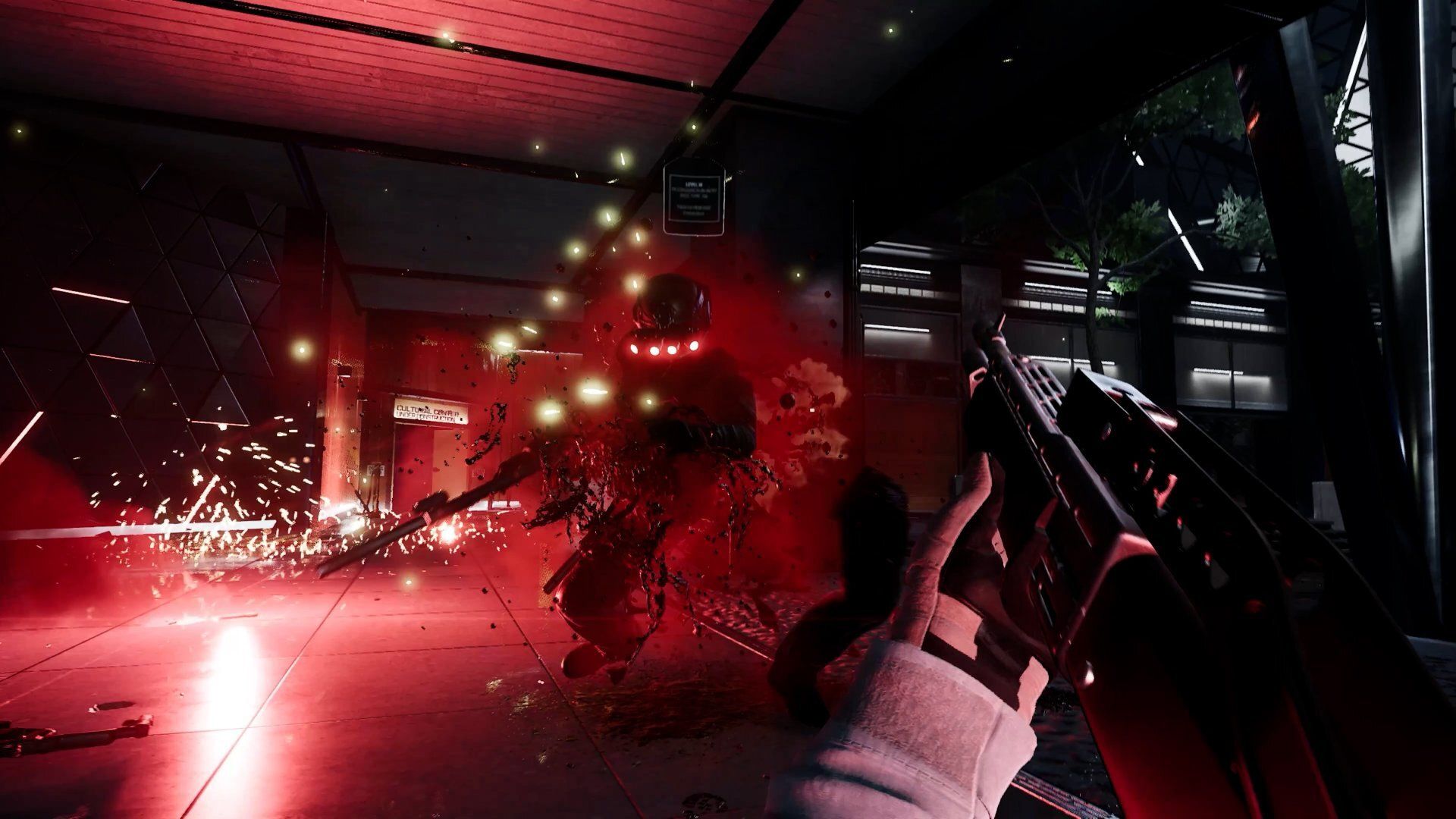
The opening mission is a microcosm of everything Trepang2 does well. Strapped to a chair in a windowless, subterranean cell, you are subject 106, a nameless prisoner of the Horizon corporation with nothing but an orange jumpsuit to your name. Released from captivity by a man dressed like a ninja, you must navigate your way to the surface via a legion of Horizon’s heavily armed goons. Luckily 106 is a super-soldier, gifted with superhuman reflexes and the ability to turn themselves invisible.
The intro level starts out slow, with you creeping through shadowy corridors as you evade the flashlights of Horizon’s guards. Soon enough you find a pistol, and take on a few enemy squads in the dark where most of the illumination is provided by strobing muzzle flashes. But it isn’t until the mission’s halfway point where the action kicks off properly, as that’s when you unlock Focus, Trepang2‘s equivalent of bullet-time.
Best Bit
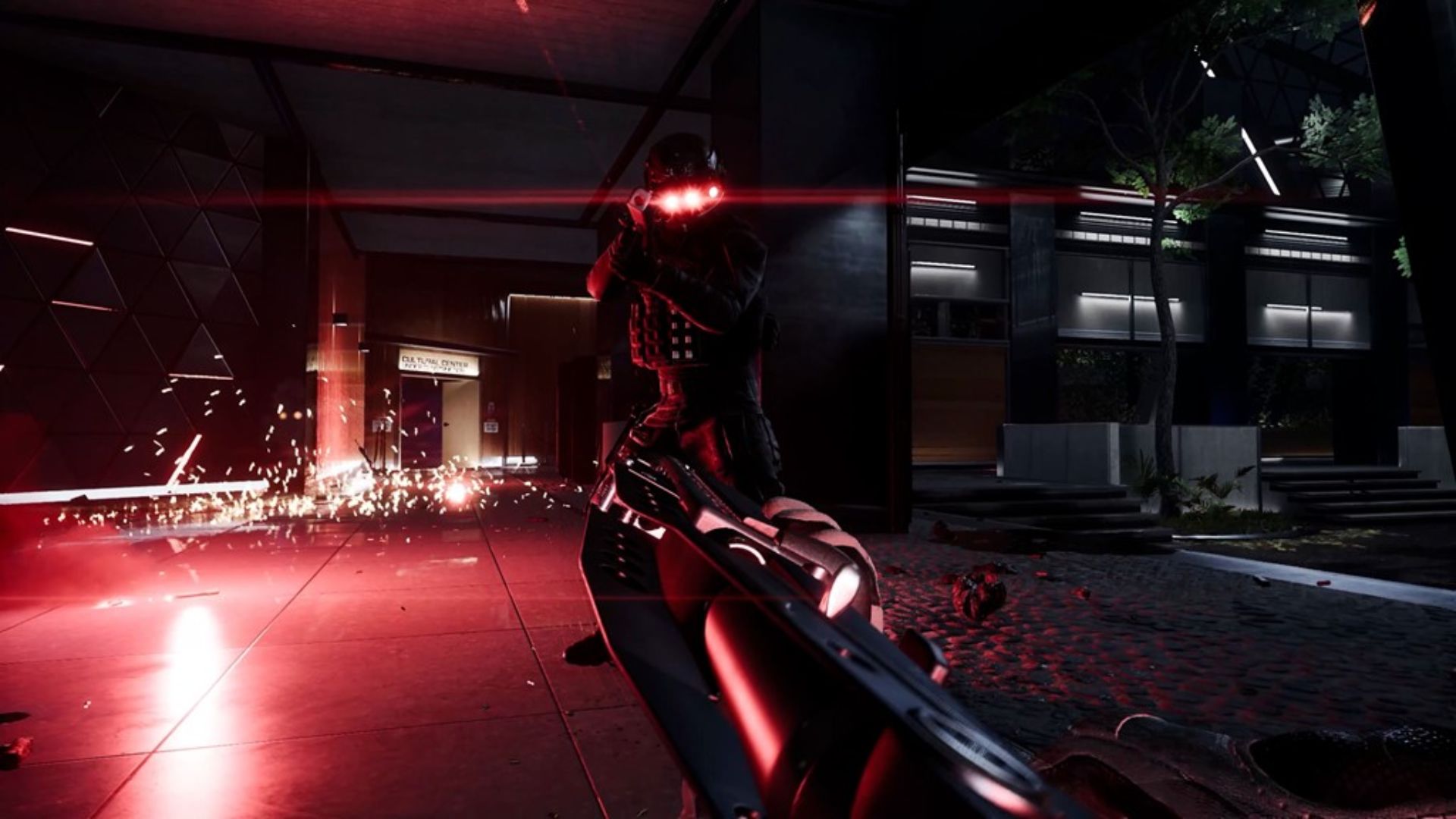
Grabbing a shotgun, hitting focus and turning a roomful of enemies into quivering piles of goo. Bullet-time may be a familiar mechanic these days, but in the right hands, it’s still wonderfully entertaining.
Bullet-time is one of countless systems that have become normalised by modern blockbuster games, but it’s been a long time since it was this enjoyable. Like Max Payne and F.E.A.R before it, Trepang2‘s slow-motion ability is more than just a power-up, it’s a reality-altering state.
In bullet-time, the world around you becomes hyperreal, bringing every detail into syrupy focus. The game’s austere rooms and spartan corridors are suddenly filled with sparks and dust. Bullets leave liquid trails in their wake, while shockwaves from detonating grenades hang in the air like deadly bubbles, bending the light passing through them. For a few seconds, you can pick your way through your opponents with ease, their blood running like treacle and their screams muffled as if underwater. Then the world lurches back into real-time, and either chaos resumes, or, if you’ve used your slowed time effectively, everything around you collapses silently to the ground.
The effect is enhanced by the physicality of Trepang2‘s gunplay. Your weapons are frighteningly tactile things, from the deceptively powerful pistol to the almighty Spas-12 shotgun, which as in F.E.A.R is unrivalled for both its efficiency in eliminating enemies, and the mess it makes while doing so. You can also deploy a limited range of melee attacks, from a slide-tackle that’s useful for knocking over enemies holding riot-shields, to a double-footed dropkick that you can use to rebound off opponents and launch yourself into the air.
Horror-ish
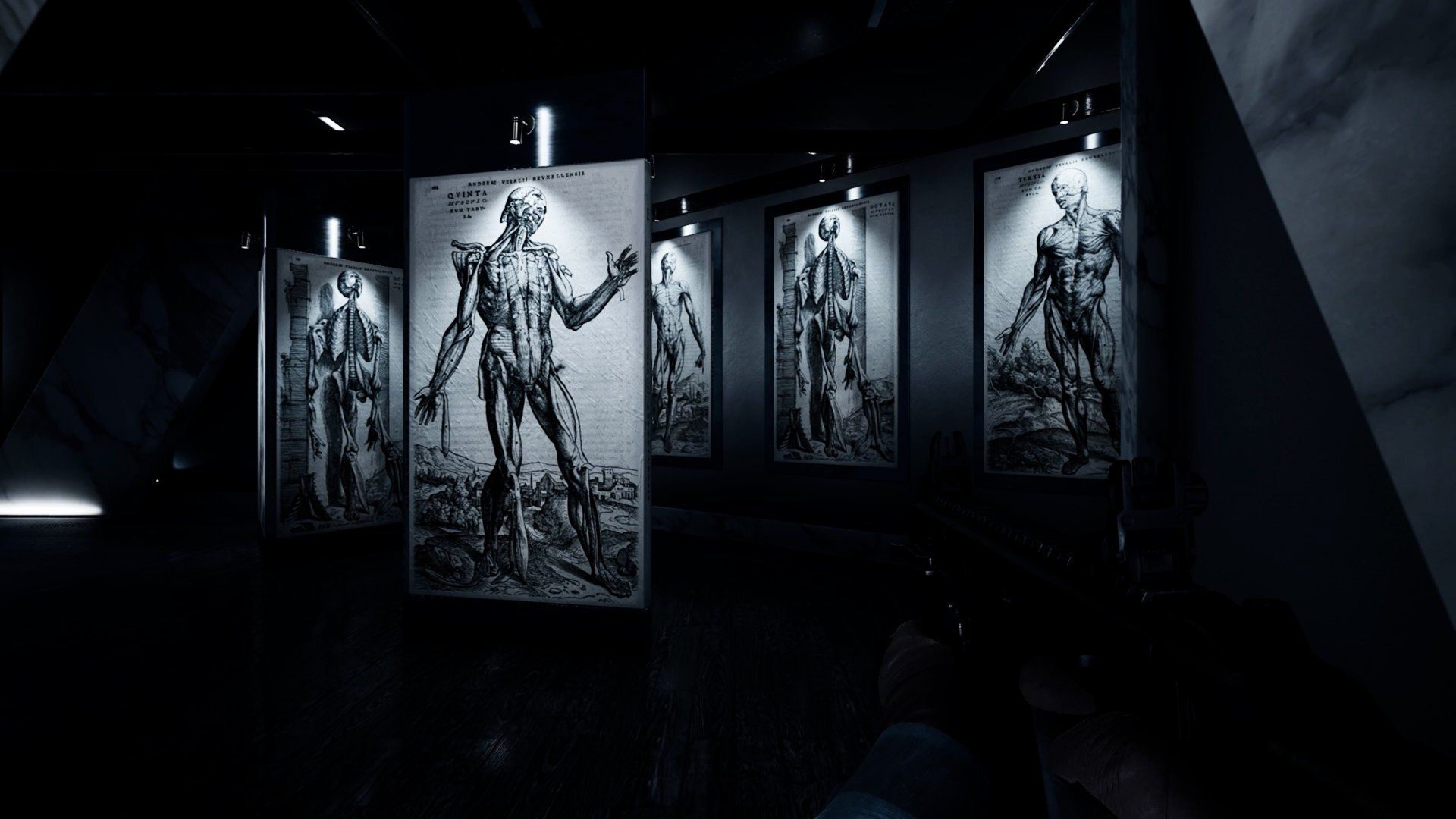
Moment-to-moment, Trepang2 is thrilling, so mechanically refined that the game could take place in a concrete box with waves of enemies poured in and it would still be entertaining. This is just as well, because a not-insignificant portion of Trepang2 is essentially structured in this manner. After the superb opening, you’re whisked away to a hidden base, where you can select your weapons and pick the next mission you want to undertake. These take the form of five or six campaign missions that are completed in sequence, and an equal number of smaller side missions that give you some leeway in the order you approach them.
Trepang2 seems to lack confidence in its horror, never settling on a particular theme or idea
The story missions are generally well-designed, starting off as Call of Duty-style raids on Horizon facilities, with you often accompanied by friendly soldiers who will help you in certain combat sequences. But these missions are rarely straightforward. Often, they’ll segue into horror territory about halfway through, although the game is better at building tension than it is at actually scaring you. Part of the problem is that Trepang2 seems to lack confidence in its horror, never settling on a particular theme or idea. One of the later campaign missions starts off with you evading a genuinely creepy entity, but it then turns into an elongated reference to a popular Internet creepypasta, which is fun in its own way, but undercuts the tension.
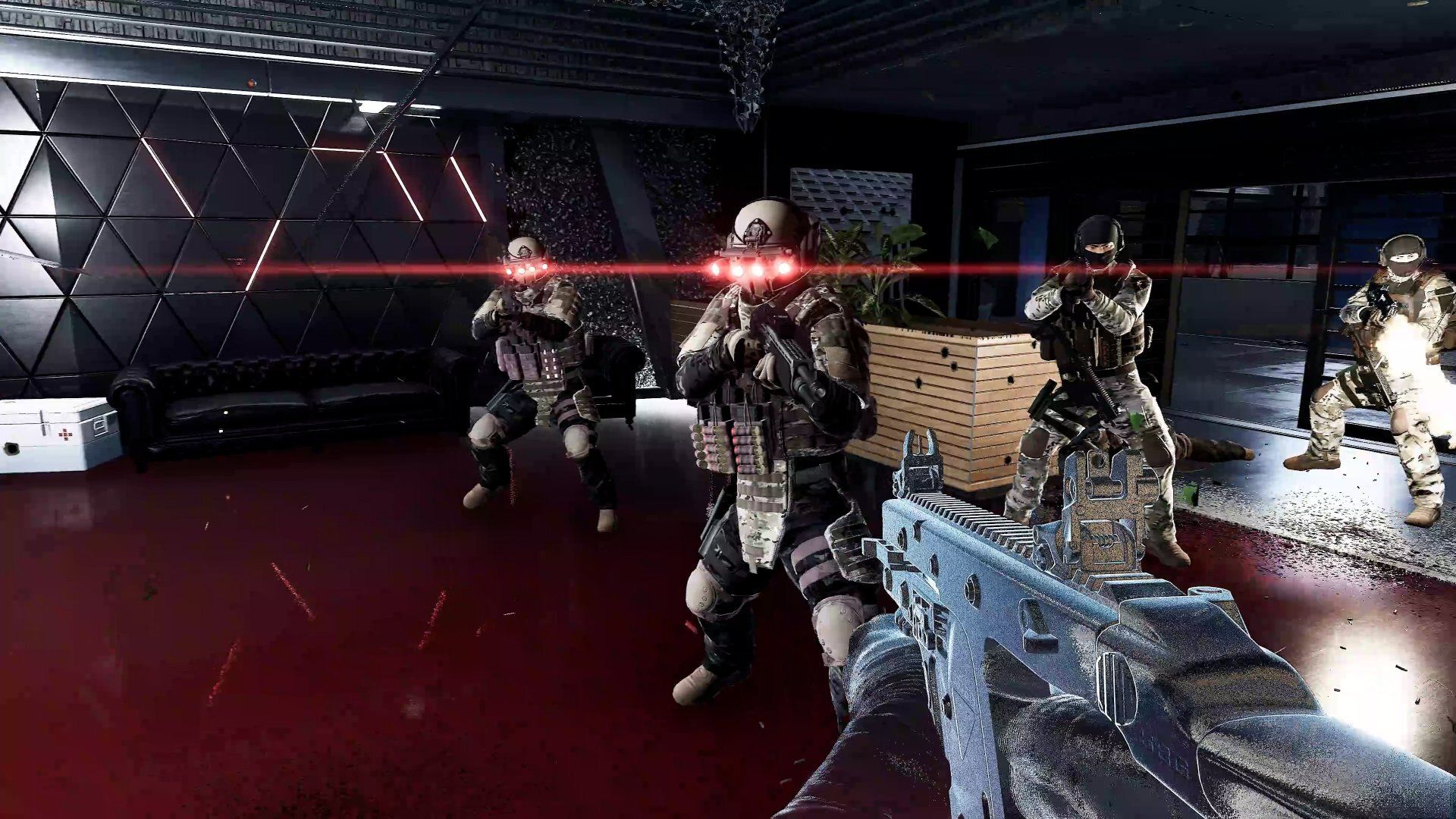
The fact there are only a half-dozen of these missions also makes the campaign feel disappointingly short. Because of this, there’s no real opportunity for the game to build out its fiction. Not that I expect a literary experience from a game about bursting virtual torsos with a big shotgun, but F.E.A.R, at least had a couple of interesting antagonists and a mystery that occasionally felt, well, mysterious. By comparison, Horizon Corporation is both faceless and toothless. Any identifiable threat it throws your way is usually dead by the end of whatever mission you’re pursuing, and the overarching plot is patchy at best, borderline incoherent at worst.
Instead, the game bulks out its running time with those side missions. Most of them are worth playing, either for the weapons they unlock, or just for their fun self-contained premises. Indeed, one of these missions features the game’s best stab at horror, with you investigating a creepy shack in the middle of nowhere that hides something very weird underneath. Nonetheless, I’d happily sacrifice all these side gigs for two additional campaign missions that better pulled the story’s various threads together.
Trepang2 never transcends the game it’s inspired by, but it succeeds where all committed disciples should, in preserving ideas that otherwise risked being forgotten in the age of online hero shooters and all-encompassing battle royales. It might not be the biggest or smartest shooter around, but as a flashy action extravaganza, it’s a heap of fun while it lasts.
Accessibility features
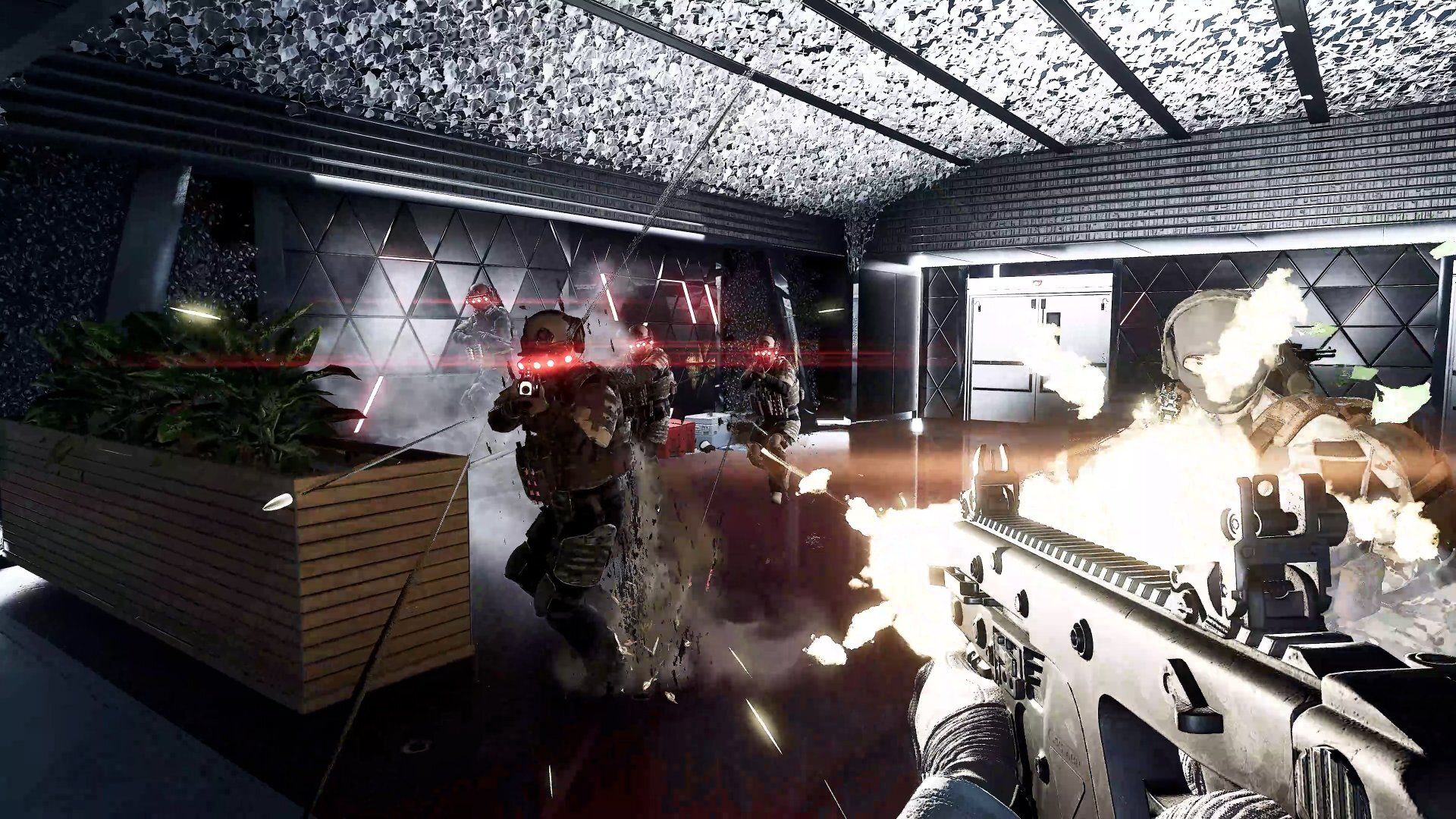
Trepang2 has no dedicated menu for accessibility. There are difficulty options ranging from “Easy” to “Rage Mode”, and aim-assist availability on easy and normal difficulties. There is a menu for “cheats”, which includes things like infinite reflex and infinite cloak. However, these must be unlocked by completing levels on varying difficulties first, which does not make them useful for accessibility purposes. Subtitles are available for voiced lines, although they are quite small.
How we reviewed
This playthrough of Trepang2 took eight hours to complete, which includes the main story and all side missions. I also tested the game at various difficulty settings, with the “Hard” difficulty feeling best balanced between providing a challenge without overly obstructing progression.
Trepang2 is a gory action-filled FPS that strays from what you’d usually find on our best FPS games list.




